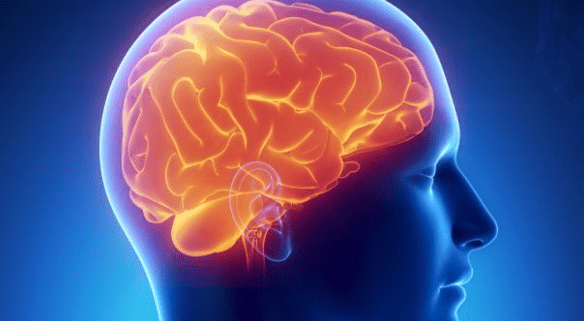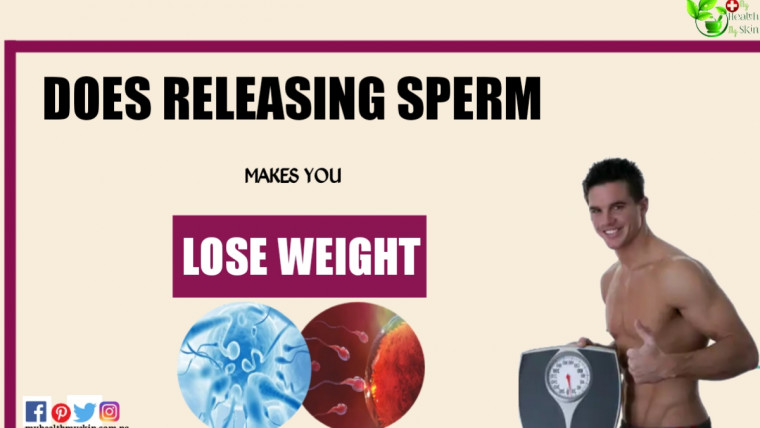Have you ever heard of melatonin? Do you know what it does, how it acts in our body and its importance for the proper functioning of our body? Myhealthmyskin tells you all about it right now! Check it all out until the end so you don’t miss out!
[lwptoc]
What Is Melatonin?

Melatonin is a hormone naturally produced by the human body. Also known as the sleep hormone, one of its basic functions is to induce a person to sleep.
It is related to the regulation of metabolism throughout the day, which includes the periods when a person is asleep or awake.
Its sleep-inducing action led pharmaceutical companies to launch its synthetic version, widely sold as a supplement in other countries, such as the United States and Europe.
In the United States, melatonin can be purchased over-the-counter at drugstores and convenience stores such as CVS.
And this is precisely the impasse for the regulation that is being processed by ANVISA for the substance: it is not yet known whether it will be classified as a food supplement or as a medicine.
In the first case, it can also be purchased without a prescription. In the second, no. Further on, Myhealthmyskin tells you where to buy this already authorized version.
What Is Melatonin Produced In The Body For?
Melatonin is a hormone linked to the circadian cycle, that is, the way the body organizes its functions when we are awake and during sleep.
The substance begins to be produced in the pineal gland when the day gets dark, to help the body prepare for sleep. It reaches its maximum level when we are sleeping.
With the sunrise and the return of light, the gland has a regulation that reduces the production of melatonin, which signals that it is time to wake up.
By regulating sleep functions throughout the body, most organs have receptors for melatonin.
Thus, it is quite possible that it acts in the body in different ways, still unknown by doctors.
It is believed that it also has cell regeneration functions and also helps fight inflammation in the body.
As today we have more and more light stimuli even at night, with television, computers and the constant use of cell phones, some people may have a lower or more irregular production of melatonin.
Some factors that usually influence the production of melatonin are:
- Age
- Exposure to light sources
- some medicines
- Blindness.
The Blue Light Stimulus And How It Impairs Sleep
Researchers have discovered that it is not the technological devices that interfere with the rest of human beings, but the light emitted by these devices.
She is the main responsible for the lack of sleep at night. That is, the problem with your television turned on at night is that the ray of light emitted by the device makes you take time to sleep.
So What Is The Danger Of Blue Light?
Among all the colors of the rainbow, blue is the most harmful to your nights sleep. And it also greatly damages long-term vision.
Scholars have found that cell phones, tablets, televisions and other electronics emit radiation in the blue color frequency, directly interfering with the production of melatonin, the hormone responsible for sleep.
That is, this light disrupts the biological clock, keeping the person more awake in moments of sleep.
Another interesting detail is that light reception happens directly on the retina.
Have you ever noticed that you know when the light in a room is on even with your eyes closed? Have you ever felt discomfort when looking towards an LED light bulb without opening your eyes?
This is because the retina absorbs light even if you don’t have your eyes open.
If Blue Light Is Harmful, What Is The Best Light Frequency For Sleep?
Research carried out in recent years has shown that an environment lit by warmer colors can favor your night’s sleep. The main one is red.
So the tips are:
- Avoid cell phones or use blue light filters on devices (there are apps for that);
- Put on glasses or turn everything off and stay in the dark;
- Look for a way to light your room with red light, as it does not suppress melatonin and prevents the body clock from being disrupted.
Does Melatonin Help You Lose Weight?
Endocrinology experts explain that sleep plays an important role in weight loss.
However, it is not possible to say that the use of melatonin itself helps to lose weight. What happens is that during quality sleep, the body regulates hormones related to satiety (ghrelin and leptin).
When you sleep little or have poor quality sleep, these hormones also act worse, causing the person to eat more until they feel satisfied.
That is, those who sleep better can control their weight more efficiently, and melatonin can be an ally in this process.
However, factors such as a balanced diet and physical activity are also decisive in weight loss, as much or more than a good night’s sleep.
Poor Sleep Can Prevent You From Losing Weight
Sleeping well is just as important for well-being as eating well, exercising regularly, and managing stress.
Our grandmothers already said that it is important to sleep well in order to grow and have a good mood. And they were always right.
Science has shown for a long time that the release of growth hormone (GH) is greater during the sleep period, contributing not only to growth but also to the proper development of bones and muscles.
Can sleeping too few hours or having a poor quality of sleep make it difficult for you to lose weight and even make you gain weight? Research carried out in recent years indicates that it is, and has identified two hormones that are directly involved in this process: Leptin and Ghrelin.
Chronic sleep deprivation seems to actually make it difficult for you to lose weight or maintain your ideal weight.
Leptin, which is mainly produced by fatty tissue, regulates your appetite by sending signals to the brain that you have eaten enough and your stomach is full.
When you don’t get enough sleep, your Leptin levels can decrease, favoring an increased need to eat.
Ghrelin, known as the fasting hormone, is produced by specific cells in the stomach and stimulates your appetite.
Lack of sleep usually increases the production of ghrelin, consequently increasing hunger.
This hormone is so important that there is currently a bariatric surgery technique in which part of the stomach is removed, where these cells that produce ghrelin are.
Of course, there are many other factors that can contribute to weight gain, including poor diet, lack of exercise, and certain medical conditions.
Try to have the last meal of the day at least two hours before bed so that the digestive process does not interfere with your sleep; The practice of regular physical exercises leads to the release of chemical messengers known as endorphins, which bring a feeling of well-being and improve sleep patterns.
Chronic sleep deprivation does seem to play an important role in making it difficult to lose weight and also maintain the ideal weight.
Bearing in mind that obesity is a risk factor for the development of several diseases, including obstructive sleep apnea, it is important that you consider whether you are sleeping and understand that sleep is a determining factor for good health.
Indications For Melatonin Supplementation
As melatonin is a hormone related to the sleep cycle, today this substance is only indicated for those who have difficulty starting to sleep, staying asleep or having quality rest during the night. This includes the following people:
- Elders, who tend to have the lowest melatonin naturally
- People who work night shifts and need to sleep during the day
- Evening, that is, people who can only sleep and wake up later
- Travelers who need to recover from jet lag or want to prevent this problem with time zones
- People with some degrees of blindness, who due to poor perception of light have difficulties in producing the hormone.
It is worth remembering that melatonin can be interesting for the treatment of some types of insomnia, but it does not work for all, since its efficiency is only proven in the initial induction of sleep.
A study published in “Genes and Cancer” by researchers at Michigan State University (MSU) also indicates that melatonin, a sleep-regulating hormone produced by the brain, can suppress the growth of cancerous breast tumors.
According to David Arnosti, co-author of the study, what makes this work so special is the understanding of the behavior of genes in their natural environment and how they interact through a disease.
In addition, it is important to note that melatonin indicated for supplementation is a much larger dose than what the body releases.
It is estimated that every night the pineal gland releases 0.1 mg of melatonin into the body, and today’s pills can have up to 3 mg of the substance. That’s why it’s important to follow a medical indication when consuming it.

Melatonin For Children
In children, melatonin also has a function linked to the circadian cycle, that is, related to the way the body organizes its functions when we are awake and during sleep.
However, adequate sleep has even more important implications for the little ones, since, as we saw above, during the night the body releases the growth hormone, which is important for the child to develop.
It is worth mentioning that, melatonin should only be given to children when it is found that they do not have a sufficient production of the hormone.
This occurs mainly in cases of autism, total blindness or some neurological damage.
In cases other than these, the ideal is to talk to a doctor, as other measures can be taken.
For example, many parents have used melatonin in search of a solution for children under 3 who are unable to fall asleep.
However, the ideal for this type of situation is to adopt sleep hygiene measures, as well as a slowdown in the rhythm of the house as a whole at bedtime.
Also, melatonin should not be given to children without talking to a specialist.
As much as many supplements sold are made with a focus on children, their use in children is currently considered controversial, since there are not enough studies proving their safety in little ones.
Autistic Children
When it comes to autistics, studies have indicated that they find it difficult to sleep and may benefit from using melatonin.
Research published in the Journal of American Academy of Child & Adolescent Psychiatry in November 2017 with 125 autistic children, for example, used a drug that releases melatonin slowly overnight.
His action helped 38 of the 56 children. In the placebo group, composed of 61 children, only 12 had improvement.
Melatonin Benefits Under Study
In addition to its sleep benefits, researchers have looked at other uses of melatonin in health. Here are some lines of research:
- Migraine treatment;
- Improved response to chemotherapy;
- Cancer prevention;
- Treatment of polycystic ovary syndrome;
- Alleviate colic in babies;
- Treatment for baldness and hair loss.
Migraine treatment: Recent studies, some done, show the uses of melatonin in the treatment of some specific types of migraine.
It has been studied for cases in which patients do not respond to common treatments, which consist of the use of analgesics, among other therapies.
But it is not yet known what effect it may have in these cases, nor has a protocol been established for its use.
Improved response to chemotherapy: Some studies in mice have shown that melatonin can help increase the effectiveness of cancer treatments using chemotherapy.
Studies are still being done in humans, but it is not yet known if this hormone will act in the same way.
Cancer prevention: Some scholars go further and believe that melatonin can influence the prevention of some types of cancer.
There are biological arguments for this, since one of the body’s processes during sleep is precisely to regulate the mechanism that controls whether the new cells created by the body are working as they should, preventing the appearance of tumors.
But human trials are still ongoing and need a few years to come to a more concrete conclusion.
Treatment of polycystic ovary syndrome: Melatonin influences the action of several hormones in the body, including some related to polycystic ovary syndrome, such as insulin and estradiol.
Therefore, this interconnection may have benefits for treatment and current research is more focused for now on understanding how melatonin can impact these hormones, and then understanding how to use it in these cases.
Alleviate colic in babies: Some studies have shown that serotonin and melatonin play important roles in the intestine: while the first causes contraction in the walls of this organ, the second helps with relaxation.
As babies have an immature pineal gland, which does not yet produce melatonin, experts are studying whether supplementing with a drop of melatonin would help in these cases, but there are still no conclusions, much less colic treatment protocols in this way.
You May Also Like:
- How to Sleep With A Scratched Eye: 10 Safe Ways
- Longevity Spinach: 13 Potential Health Benefits, Uses And How To Grow
- 10 Wonderful Benefits Of Rice Water For Skin, Hair & Health
- Saxenda Lose Weight? What It Is, Results And How To Use It
- Apetamin For Weight Gain: What Happens Before And After? Is it legal? Side effects
- How to make Hair oil for Stimulating Hair growth
Treatment for baldness and hair loss: Recent studies have shown that topical melatonin can help fight early-stage androgenetic alopecia.
Apparently, this substance seems to improve the multiplication of germ cells in the hair bulb, stimulating hair growth.
In addition, it seems to improve oxidative stress, which could favor the action of DHT (dihydrotestosterone), one of the causes of this type of alopecia.
Today, these manipulated products are already released and are sold.
An Italian study done in 2012 with 35 men demonstrated this effect.
Published in the International Journal of Trichology, the research asked volunteers, aged between 18 and 40 and with androgenetic alopecia to use the hair solution with melatonin once a day for 6 months.
After the period, it was found that there was an increase in capillary count (29.2% after three months and 42.7% after six months) and in capillary density (increase of 29.1% in three months and 40.9% in six months).
How To Consume
Melatonin is sold abroad in doses of up to 10 milligrams. Usually when it is indicated for sleep problems, doctors advise to consume up to 3 mg a day, between one and two hours before bed.
When we talk about children, there is no dosage currently considered safe, and the ideal is not to offer this hormonal supplement to them.
Precautions When Consuming Melatonin
There are no risks in the consumption of melatonin, only the normal danger to those who are allergic to any compound in the capsule or allergic to the substance itself. Other than that, the substance is safe.
Excessive consumption can bring problems, but consuming up to 10 mg a day brings no complications.
Among the side effects already observed in the consumption of high doses are headache and change in the production of some hormones, such as prolactin.
In addition, some patients report increased dream production when taking the supplement. Children may have an increase in nightmares at night.
Melatonin Contraindications
Synthetic melatonin is contraindicated for people with a history of angina and heart attack.
Where To Buy?
You will find the capsules released by ANVISA to be sold in pharmacies in your region. After the recommendation of your trusted doctor, you can purchase it with just one click through Walmart.
If you want to read more articles similar to melatonin: what’s it, benefits, does melatonin help you lose weight? We recommend you visit our Weight Loss & Weight Gain category. Share on your social networks and stay tuned for upcoming articles.

We Indicate The Best Offer Of This Supplement For You! Check It Out And Then Comment In The Box Below If You Have Any Questions About Melatonin That We Will Be Happy To Help You!







